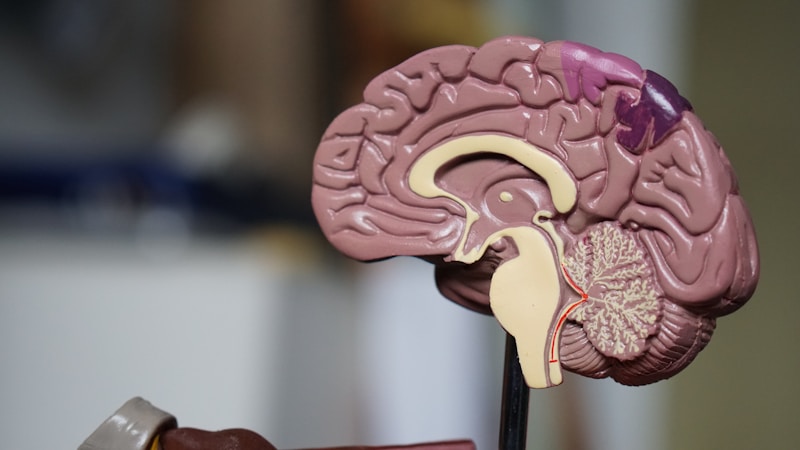The Science of Longevity: Evidence-Based Strategies for a Longer, Healthier Life

The quest for longevity has captivated humanity for millennia, but only recently has science begun to unlock the biological mechanisms of aging. Groundbreaking research in genetics, cellular biology, and lifestyle medicine reveals that we have more control over our healthspan than previously imagined. This comprehensive guide explores the latest scientific findings on extending not just lifespan, but the years we spend in vibrant health.
Understanding the Biology of Aging
Aging is not simply the passage of time but a complex biological process involving multiple interconnected systems. Scientists have identified nine hallmarks of aging: genomic instability, telomere attrition, epigenetic alterations, loss of proteostasis, deregulated nutrient sensing, mitochondrial dysfunction, cellular senescence, stem cell exhaustion, and altered intercellular communication.
Recent breakthroughs in understanding these mechanisms have led to potential interventions. Telomeres, protective caps on chromosomes that shorten with age, can be preserved through lifestyle factors. Cellular senescence, where damaged cells accumulate instead of dying, can be targeted with emerging senolytic drugs. Mitochondrial health, crucial for cellular energy, can be optimized through specific exercises and dietary patterns.
Epigenetics, the study of how behaviors and environment affect gene expression, reveals that aging is more plastic than fixed. Research shows that biological age, measured through DNA methylation patterns, can differ significantly from chronological age and can be reversed through targeted interventions.

The Blue Zones: Lessons from the World's Longest-Lived Populations
Blue Zones – regions where people routinely live past 100 – offer real-world laboratories for longevity research. These areas include Okinawa (Japan), Sardinia (Italy), Nicoya (Costa Rica), Ikaria (Greece), and Loma Linda (California). Despite geographic and cultural diversity, they share remarkable commonalities that science is now validating.
"The secret to longevity isn't found in a pill or procedure, but in the daily habits practiced consistently over a lifetime."
Dan Buettner, Blue Zones Researcher
Blue Zone populations naturally incorporate movement throughout their day, practice stress-reduction rituals, have strong social connections, and follow plant-predominant diets. They experience purpose-driven living, often expressed through concepts like "ikigai" in Okinawa or "plan de vida" in Nicoya. Family bonds remain strong across generations, and faith-based communities provide social support and stress relief.



Exercise: The Most Powerful Anti-Aging Medicine
If exercise were a pill, it would be the most prescribed medication in history. Research consistently shows that regular physical activity can add 4-7 years to life expectancy while dramatically improving quality of life. Exercise influences all nine hallmarks of aging, from preserving telomeres to enhancing mitochondrial function.
The optimal exercise prescription combines four elements: aerobic exercise for cardiovascular health, resistance training for muscle and bone preservation, flexibility work for mobility, and balance training for fall prevention. High-intensity interval training (HIIT) shows particular promise for cellular rejuvenation, increasing mitochondrial biogenesis and improving metabolic health.
Strength training becomes increasingly crucial with age, as we naturally lose 3-8% of muscle mass per decade after 30. Maintaining muscle mass protects against falls, preserves metabolic health, and correlates strongly with longevity. Even starting resistance training in one's 80s shows significant benefits for function and independence.
Nutrition for Longevity: What Science Really Shows
Decades of nutrition research converge on several key principles for longevity. The Mediterranean diet, rich in olive oil, vegetables, whole grains, and fish, reduces mortality by 20% and significantly lowers rates of heart disease, cancer, and neurodegenerative diseases. The diet's benefits stem from anti-inflammatory compounds, healthy fats, and diverse phytonutrients.

Caloric restriction and intermittent fasting show promise for extending lifespan across species. Time-restricted eating, limiting food intake to 8-12 hour windows, improves metabolic health and may activate longevity pathways. However, the quality of food matters as much as quantity – whole, minimally processed foods provide the nutrients necessary for optimal cellular function.
Longevity Diet Principles
- 70% plant-based foods minimum
- Omega-3 rich fish 2-3x weekly
- Limit red meat to monthly
- Daily nuts and legumes
- Minimal ultra-processed foods
- Moderate alcohol or none
Sleep: The Foundation of Cellular Repair
Sleep is when the body performs critical maintenance, from clearing metabolic waste from the brain to repairing DNA damage. Chronic sleep deprivation accelerates aging, increases inflammation, and raises risk for all major chronic diseases. Adults sleeping less than 6 hours nightly have a 13% higher mortality risk than those getting 7-9 hours.
Quality matters as much as quantity. Deep sleep stages are crucial for physical restoration and memory consolidation, while REM sleep supports emotional regulation and creativity. Creating optimal sleep conditions – cool temperature, complete darkness, consistent schedule – can dramatically improve sleep architecture and its restorative benefits.
Stress Management and Mental Health
Chronic stress accelerates cellular aging through multiple pathways, from shortening telomeres to increasing inflammation. The stress hormone cortisol, when chronically elevated, damages the hippocampus, suppresses immune function, and promotes metabolic dysfunction. Managing stress isn't optional for longevity – it's essential.
Meditation shows remarkable effects on biological aging markers. Regular practitioners have longer telomeres, reduced inflammation, and preserved brain volume with age. Even eight weeks of mindfulness practice creates measurable changes in brain structure and function. Other effective stress-management techniques include yoga, tai chi, time in nature, and maintaining strong social connections.
"The mind and body are not separate. What affects one, affects the other. Stress management is health management."
Dr. Herbert Benson, Harvard Medical School
Social Connections: The Hidden Longevity Factor
Loneliness increases premature death risk by 26-32%, comparable to smoking 15 cigarettes daily. Strong social connections, conversely, increase longevity by 50%. The mechanisms are multifaceted: social support buffers stress, encourages healthy behaviors, and provides purpose and meaning.
Quality trumps quantity in relationships. Having a few deep, meaningful connections proves more beneficial than numerous superficial ones. Volunteering and helping others activates reward centers in the brain and correlates with reduced mortality. Maintaining social connections requires intentional effort, especially with age, but the investment pays profound dividends for health and happiness.

Emerging Longevity Interventions
Cutting-edge research is exploring pharmacological interventions for aging. Metformin, a diabetes drug, shows promise for extending healthspan in non-diabetics. Rapamycin, an immunosuppressant, extends lifespan in animal models. NAD+ boosters aim to restore cellular energy production. Senolytics target and eliminate senescent cells that accumulate with age.
Gene therapy and cellular reprogramming represent the frontier of anti-aging research. Scientists can now reverse aging markers in cells and extend lifespan in animal models through genetic interventions. While human applications remain years away, these technologies could fundamentally transform our relationship with aging.
However, the most powerful longevity interventions remain accessible to everyone: regular exercise, healthy diet, quality sleep, stress management, and strong relationships. These lifestyle factors can add 12-14 years to life expectancy – more than any drug currently available or in development.
Creating Your Personal Longevity Plan
Implementing longevity practices requires personalized strategies based on individual genetics, health status, and lifestyle. Start with comprehensive health assessments including advanced biomarkers of aging. Track progress through regular monitoring of key metrics: blood pressure, glucose regulation, inflammation markers, and functional fitness.
Focus on sustainable changes rather than dramatic overhauls. Small, consistent improvements compound over time. Prioritize the fundamentals – movement, nutrition, sleep, stress management, and relationships – before considering supplements or advanced interventions. Remember that longevity is not just about adding years to life, but life to years.
Start Your Longevity Journey
Download our comprehensive longevity assessment and personalized action plan to optimize your healthspan.